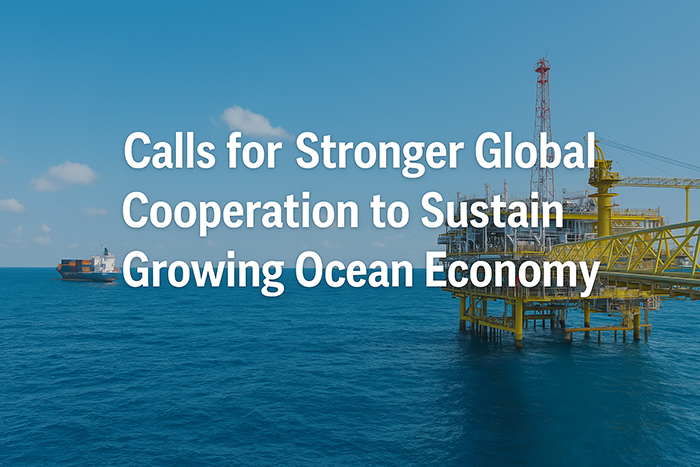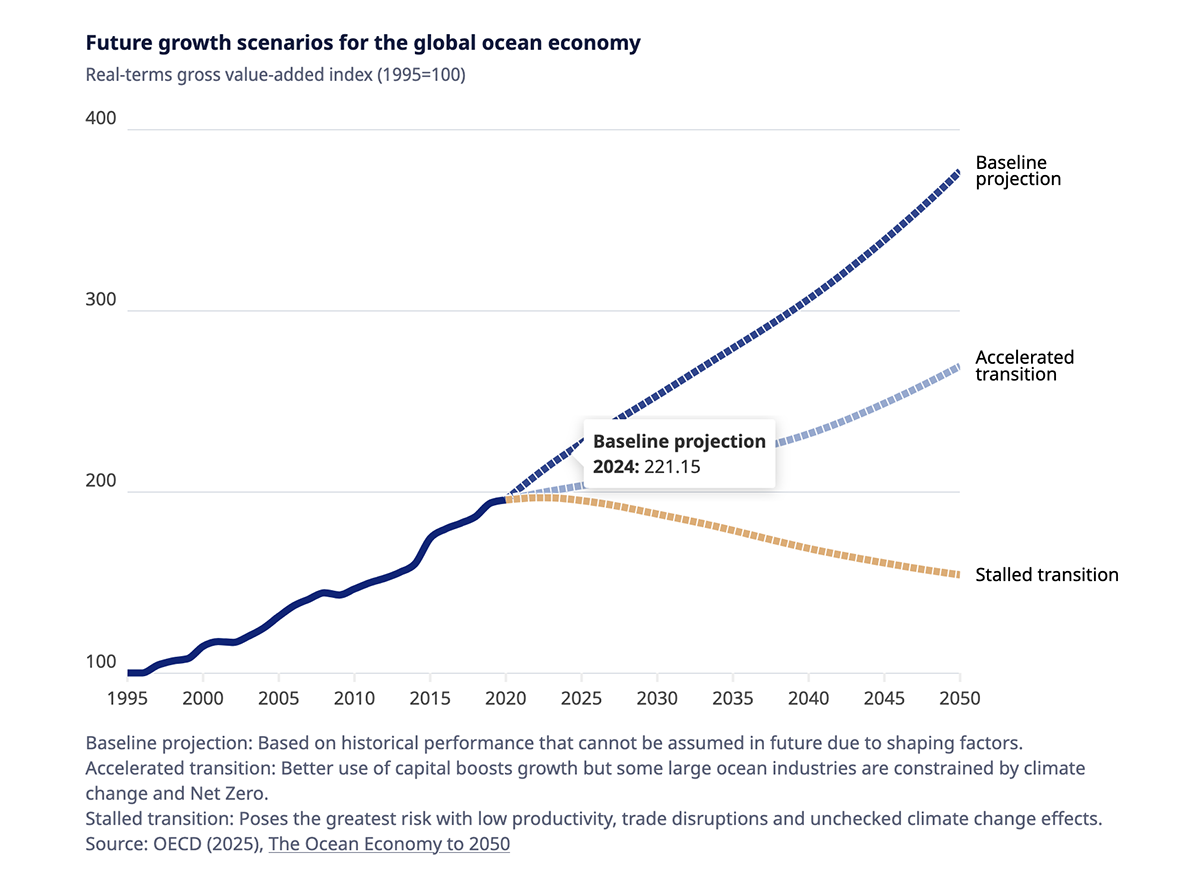OECD calls for stronger global cooperation to sustain growing ocean economy
The global ocean economy has doubled in real terms over the past quarter-century, reaching a value of USD 2.6 trillion in 2020, according to a new report by the Organisation for Economic Co-operation and Development (OECD). However, the report warns that without coordinated international action and strengthened policies, this growth may not be sustainable in the long term.
The OECD’s Ocean Economy to 2050 report outlines key challenges and opportunities that will shape the future of ocean-based industries. Sectors such as offshore oil and gas, marine and coastal tourism, fishing, aquaculture, maritime transport, and port operations have all contributed significantly to economic expansion, accounting for 3–4% of global gross value added over the past 25 years. Despite this steady growth, future gains are far from guaranteed.
According to the OECD, emerging threats such as climate change, shifting demographics, disruptions in global trade, and a lack of investment in productivity-enhancing and green technologies could undermine continued economic progress. In the absence of proactive policy and investment, global ocean economic activity could fall by as much as 20% below 2020 levels by mid-century. On the other hand, if governments accelerate the shift to cleaner energy and invest in innovation, modest but sustainable growth in the ocean economy could continue.
“The case for improving ocean governance and boosting international cooperation is not only environmental, it’s economic,” said OECD Secretary-General Mathias Cormann. “Science-based policymaking, better marine management, and the adoption of digital tools are vital to protecting the jobs, food security, and livelihoods of hundreds of millions of people who rely on the ocean.”
The past decade has seen advances in how countries manage their ocean resources, with the adoption of national ocean strategies, maritime spatial planning, and better ocean economy accounting. International efforts on marine biodiversity, climate policy, fisheries, and reducing emissions from shipping have also made progress. Nonetheless, challenges such as growing market concentration, illegal activities, and uneven policy enforcement remain unresolved.
The OECD report urges countries to strengthen collaboration on ocean governance, particularly in areas where collective action is needed to address global risks. It also calls for greater investment in the energy transition from fossil fuels to renewables in ocean-related industries, along with the integration of advanced digital technologies to improve data collection and monitoring.
In addition to technological and environmental goals, the report emphasizes the need to enhance cooperation with developing nations. Ensuring that economic gains from the ocean are widely shared and contribute to wellbeing, employment, and the preservation of marine ecosystems is a priority. Protecting vulnerable marine environments, while promoting sustainable use and restoration, is framed as both a moral and economic necessity.
The OECD’s conclusions are grounded in new calculations derived from its Inter-Country Input-Output (ICIO) database, offering a detailed picture of how ocean-based industries contribute to global economic output. By modelling future scenarios based on historical productivity data, the report presents a range of possibilities for the ocean economy to 2050—some of which depend heavily on decisive policy choices made today.










